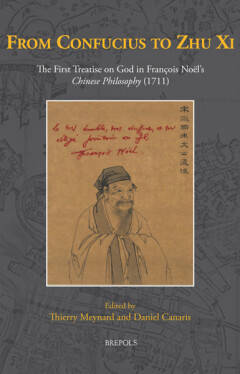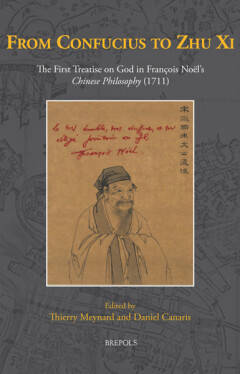
- Afhalen na 1 uur in een winkel met voorraad
- Gratis thuislevering in België vanaf € 30
- Ruim aanbod met 7 miljoen producten
- Afhalen na 1 uur in een winkel met voorraad
- Gratis thuislevering in België vanaf € 30
- Ruim aanbod met 7 miljoen producten
Zoeken
From Confucius to Zhu XI
The First Treatise on God in Francois Noel's Chinese Philosophy (1711)
Thierry Meynard
Hardcover | Engels
€ 127,20
+ 254 punten
Omschrijving
On 25 September 1710, Pope Clement XI finally promulgated the 1704 decree Cum Deus optimus, which condemned the toleration of certain Confucian rituals among Chinese Catholic converts and the use of the Chinese terms tian and Shangdi to refer to the Christian God. This papal decision antagonised the Kangxi Emperor and devastated the Jesuit China mission. Although the Jesuits were prohibited from publicly refuting the decree, the Flemish Jesuit Francois Noel sought to defend the Jesuit position by publishing his voluminous scholarship on the Chinese classics. Among other works, in 1711 Noel published two seminal contributions to the history of Sinology: the Sinensis imperii libri classici sex or Libri sex, and the Philosophia Sinica, a sophisticated treatment of Chinese metaphysics, ritual and ethics. While the Libri sex achieved some degree of influence in the Enlightenment through the French translation of the French Jesuit historian Du Halde and the writings of the philosopher Christian Wolff, the Philosophia Sinica was actively suppressed by the Superior-General of the Jesuit order. Yet it is in this latter work where the full breadth of Noel's originality and intellectual contribution can be found. Noel reinterprets the Jesuits' position through the lens of Neo-Confucianism, integrating concepts such as li, taiji, yin and yang in his reading of Chinese philosophy. With contributions from Sinologists and intellectual historians, this book offers the first systematic study of this pioneering work.
Specificaties
Betrokkenen
- Auteur(s):
- Uitgeverij:
Inhoud
- Aantal bladzijden:
- 432
- Taal:
- Engels
Eigenschappen
- Productcode (EAN):
- 9782503601793
- Verschijningsdatum:
- 15/06/2023
- Uitvoering:
- Hardcover
- Formaat:
- Genaaid
- Afmetingen:
- 160 mm x 240 mm
- Gewicht:
- 861 g

Alleen bij Standaard Boekhandel
+ 254 punten op je klantenkaart van Standaard Boekhandel
Beoordelingen
We publiceren alleen reviews die voldoen aan de voorwaarden voor reviews. Bekijk onze voorwaarden voor reviews.








